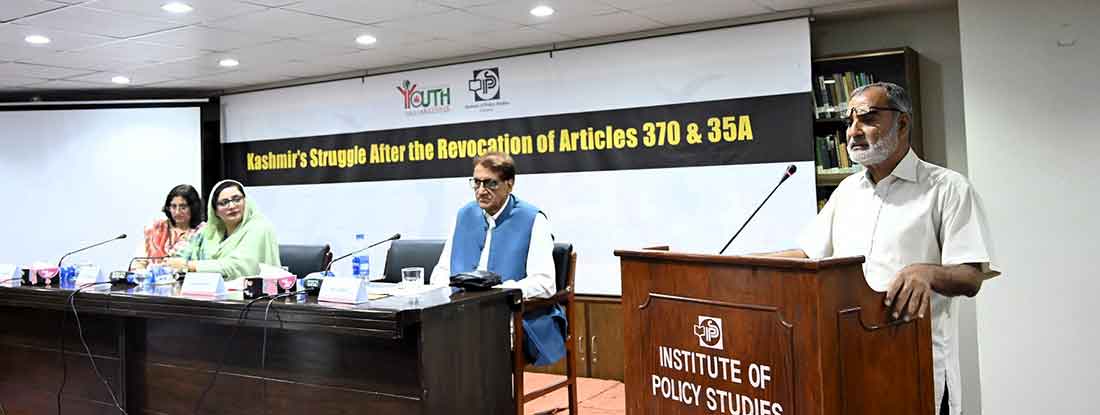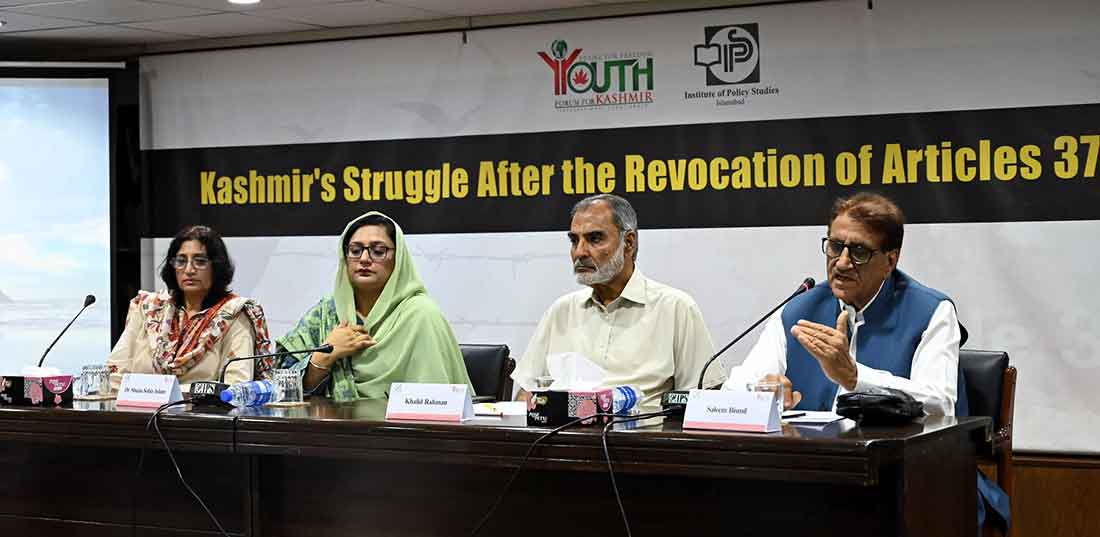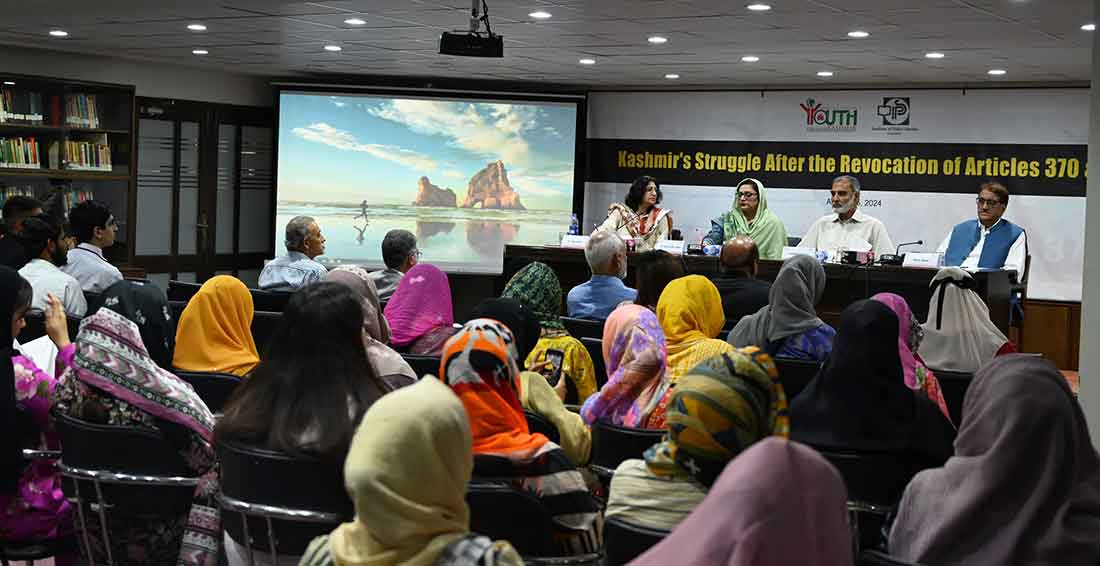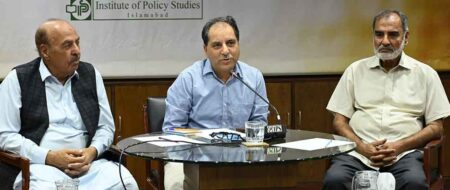‘Kashmir’s Struggle after the Revocation of Articles 370 and 35A’
Pakistan’s Kashmir narrative has the benefit of truth, needs to be amplified by informed youth
In today’s narrative-driven era, Pakistan must leverage its advantage of truth and Kashmiri support to amplify its pro-Kashmir stance and employ proactive diplomacy at all levels. Engaging informed youth in advocacy efforts is crucial to keeping the issue prominent on the international stage.
This approach is vital for countering Indian narratives that portray the Kashmir issue as an internal matter and downplay human rights violations. As Indian coercive methods and narratives have failed to suppress the Kashmiris struggle, Pakistan’s focus on narrative building and youth engagement can effectively attract global attention and support.

This was discussed by speakers during a session ‘Kashmir’s Struggle after the Revocation of Articles 370 and 35A’ held at IPS, in collaboration with the Youth Forum for Kashmir (YFK) on August 5, 2024. The event featured a short documentary on the Kashmiri struggle post-2019, titled ‘Kashmir: A Paradise, Colonized’, as well as the announcement of the winners of an essay competition organized by YFK to engage and raise awareness among youth about the Kashmir issue.
The event was chaired by Dr. Shazia Sobia Aslam, member of the National Assembly, and addressed by Khalid Rahman, chairman IPS, Dr. Shahzad Iqbal Sham, senior research fellow IPS, Saleem Bismil, former secretary, Government of AJ&K, Dr. Noor Fatima, associate professor and chairperson, Department of International Relations and Political Science, International Islamic University, Islamabad, Farzana Yaqoob, former minister of AJK and IPS research associate, Zaman Bajwa, executive director, YFK, and others.
Dr. Shazia stressed the need for consistent and proactive international diplomacy on the Kashmir issue, advocating for engagement beyond political leaders to every level of society. She underscored the importance of bridging the communication gap between youth and leaders and utilizing contemporary tools for effective representation.
It is important to understand that the Kashmir issue has dual dimensions, i.e. real estate and human beings, said Bismil. He pointed out that while India may claim the land, it has failed to win the hearts and minds of the Kashmiri people. He stressed that this is a silver lining and Pakistan, with the advantage of truth on its side, must mobilize its youth to propagate its narrative.

Quoting Arundhati Roy’s critique of India’s self-proclaimed democracy as the “biggest lie”, Dr. Noor emphasized that Indian narratives cannot hide the severe human rights abuses in occupied Kashmir. She stressed the necessity of a multifaceted approach and the mobilization of international support to address the situation.
Farzana Yaqoob noted that while Pakistan actively supports Kashmir, it is equally essential for the AJK government to play a pivotal role. She urged the youth to utilize social media as an advocacy tool to create and propagate narratives-based content and to counter shadow bans.
The Kashmir struggle is a long marathon that will be carried forward by the youth, said Bajwa while expressing confidence in youth interest and potential if provided with the right platforms and skills.
Other speakers were of the view that at the same time, Pakistan needs to strengthen its inner economic and military stability, as unity and resilience are crucial in countering the narrative. They highlighted the importance of international support and unity in achieving freedom, advocating for continuous narrative-building to maintain the spirit of Kashmir’s resistance.
In his concluding remarks, Khalid Rahman stressed the importance of nurturing an informed and skilled youth to effectively advance the pro-Kashmir narrative. He emphasized that equipping young people with knowledge and advocacy skills is crucial for sustaining the Kashmir cause and countering misinformation on the global stage. He highlighted the systemic challenges in promoting the pro-Kashmir narrative and emphasized that the issue is fundamentally a matter of self-determination, not a bilateral dispute. Rahman called for multifaceted efforts and robust international diplomacy to keep the issue prominent and counter India’s attempts to obscure its human rights abuses.

|
IPS TV |
| There’s a need for consistent, proactive int’l diplomacy on Kashmir issue | Dr. Shazia Sobia Aslam/strong> |
India may claim the land of Kashmir, it has failed to win the hearts of its people | Saleem Bismil |
| Indian narratives cannot hide its human rights abuses in IoK | Dr. Noor Fatima (IIUI) |
Need skilled, informed youth to effectively advance the pro-Kashmir narrative | Khalid Rahman |












